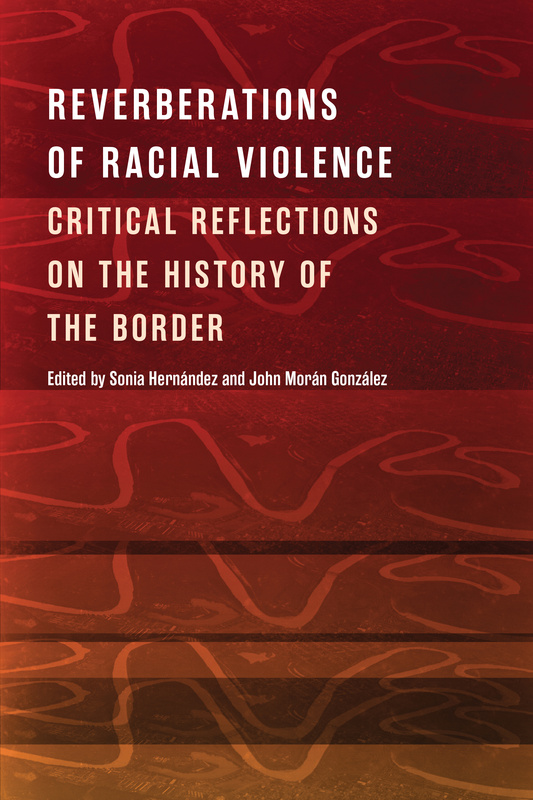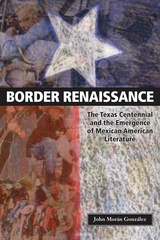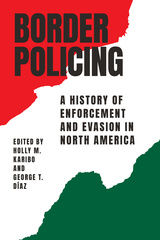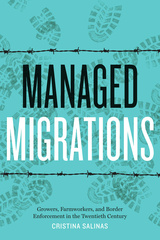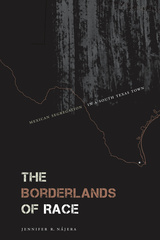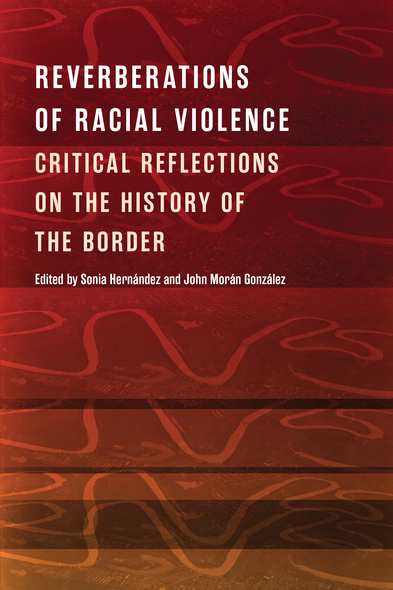
Reverberations of Racial Violence
Critical Reflections on the History of the Border
Between 1910 and 1920, thousands of Mexican Americans and Mexican nationals were killed along the Texas border. The killers included strangers and neighbors, vigilantes and law enforcement officers—in particular, Texas Rangers. Despite a 1919 investigation of the state-sanctioned violence, no one in authority was ever held responsible.
Reverberations of Racial Violence gathers fourteen essays on this dark chapter in American history. Contributors explore the impact of civil rights advocates, such as José Tomás Canales, the sole Mexican-American representative in the Texas State Legislature between 1905 and 1921. The investigation he spearheaded emerges as a historical touchstone, one in which witnesses testified in detail to the extrajudicial killings carried out by state agents. Other chapters situate anti-Mexican racism in the context of the era's rampant and more fully documented violence against African Americans. Contributors also address the roles of women in responding to the violence, as well as the many ways in which the killings have continued to weigh on communities of color in Texas. Taken together, the essays provide an opportunity to move beyond the more standard Black-white paradigm in reflecting on the broad history of American nation-making, the nation’s rampant racial violence, and civil rights activism.
By refusing to acknowledge and recognize others' perspectives and sufferings, we increase the likelihood of not recognizing and, thus, resisting and stopping the repetition of past horrors. That's why it's important we refuse to forget. One way to start is by reading this collection.
[An] excellent collection of essays...Few edited collections are as cohesive and substantive as Reverberations of Racial Violence...The book balances to great effect hard examinations of state-sponsored violence while avoiding sensationalism. Collectively, the book presents tangible facts and detailed truths that will resonate with readers familiar with the matanza as well as those learning of it for the first time.
[Reverberations of Racial Violence] is a critical addition to Latina/o/x and borderlands studies, given its thoughtful and exceptionally argued premise that the reverberations of racial violence extend well into the Southwest region of the United States.
[Reverberations of Racial Violence] boldly and unapologetically places the reader in the middle of what is perhaps one of the greatest debates in the discipline of history: what to remember and what to forget...by tendering the history of Mexicans in Texas as a case study, the authors invite the reader to rethink the narratives of how the state was settled and built, and what those 'in charge' of its official history choose to remember and what they choose to forget. It is at this intersection where the greatest contribution of this edited volume is found...Through its 328 pages, the book convincingly shows that the state has never fully acknowledged the legacy of its past of racism, violence, and exclusion on a community that was already there when Anglos first arrived.
An excellent collection that can be easily adopted in undergraduate and graduate courses focusing on Texas history; Chicanx, and Latinx Studies; U.S.-Mexico borderlands studies, and more specialized courses that focus on topics such as violence, memory, and public history...As the debates around ethnic studies education continue to intensify across the country, books like Reverberations of Racial Violence are more than ever a compelling reminder of the importance of critical public scholarship.
A model for rigorous and thoughtful public-facing and public-engaging historical reflection...Volume contributions compellingly demonstrate how the project of unsettling and recovering border history produces its best work when it is collective, multi-modal, and multi-sited...Reverberations is a great teaching resource for undergraduates and graduates alike. It is also a must read for border historians (North American and otherwise) because it respects the multiformity of evidence and readily confronts the challenges of making history count outside of academic circles.
This comprehensive collection of essays, carefully selected by Sonia Hernández and John Morán González, underscores a brutal history that remains largely unknown to the public. These essays should be read by those who want to better understand the history of modern America through the bloody experience of the Mexican people of Texas. As the various authors make clear, ethnic Mexicans know their history, it only remains hidden to those who do not want to face the American past.
While some may view these essays as sharing an untold story, others write and read to reshape the dominant historical narrative to remember those who have been forgotten. With this book, I will refuse to forget.
How far have we come from Porvenir in 1918 to El Paso in 2019? Reverberations of Racial Violence reclaims a tortured history of racial terror once kept only in family archives or buried in state records and reveals the courageous stands taken by such early civil rights pioneers as J. T. Canales and Jovita Idar. The essays testify to the power of public history as an intersectional collaboration among scholars, narrators, and curators. With evocative narratives girded by exhaustive research, this collection demonstrates why history matters as context and conscience.
Reverberations of Racial Violence makes a unique contribution by delving into the Canales investigation to paint a picture of the social landscape of south Texas from roughly 1850 to 1920, including education, journalism, law, race relations, lynching, and state terror. In doing so, it offers important insights into the role of memory and history in shaping the contested understandings of the present.
Acknowledgments
Introduction: Memory, Violence, and History in the 1919 Canales Investigation (Sonia Hernández and John Morán González)
Poem 1. Yo Soy de Frank Rabbaté (Diana Noreen Rivera)
Section I. La Matanza and the Canales Investigation in Context
Chapter 1. Refusing to Forget: A Brief History (Trinidad Gonzales, Benjamin Heber Johnson, and Monica Muñoz Martinez)
Chapter 2. Anglos, Mexicans, and Rangers in Texas, 1850–1900 (Andrew R. Graybill)
Chapter 3. Texas in Four Parts: The Bordered World of 1919 (Walter L. Buenger)
Chapter 4. La Matanza and the Canales Investigation in Comparative Perspective (William D. Carrigan and Clive Webb)
Chapter 5. Representation, Refusal, and Remembrance: Lynching and Extralegal Violence in Mexico and the United States, 1890s–1930s (Gema Kloppe-Santamaría)
Section II. J. T. Canales, Resistance, and Resilience
Chapter 6. The World of Education among Ethnic Mexicans in J. T. Canales’s South Texas (Philis M. Barragán Goetz and Carlos K. Blanton)
Chapter 7. Humanizing La Raza: The Activist Journalism of the Idar Family in Early Twentieth-Century Texas (Gabriela González)
Chapter 8. José Tomás Canales and the Paradox of Power (Richard Ribb)
Chapter 9. J. T. Canales’s Contributions in Law, Civil Rights, and Education, 1920–1976 (Cynthia E. Orozco)
Section III. Reflections on Recovering a History of State Violence and Its Reverberations
Chapter 10. Hidden History: A Journey through the Past, with Hard Lessons for the Present (Kirby F. Warnock)
Chapter 11. Recovering the 1919 Canales Investigation of the Texas Ranger Force: Archival Investigation and Its Consequences, 1975–2010 (James A. Sandos)
Chapter 12. The Legacy of La Matanza, Intergenerational Trauma, and the Writing of El Rinche (Christopher Carmona)
Chapter 13. Stewarding the Personal Narratives of Painful History (Margaret Koch)
Chapter 14. Reckoning with the Past toward the Here and Now (Katherine Hite)
Poem 2. Living Witness (Nati Román)
Epilogue (John Phillip Santos)
Contributors
Index

